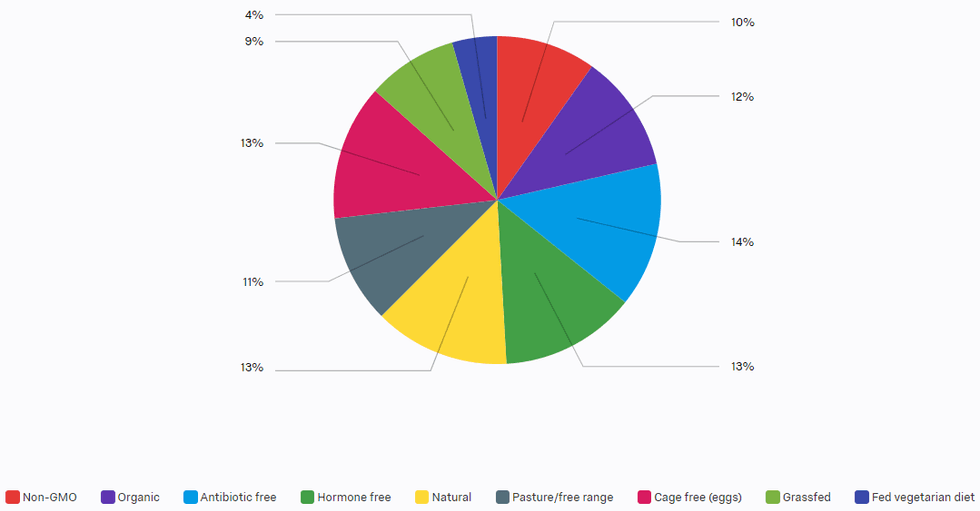A classmate of mine, Hannah Campbell, created a survey about the US Consumer Perceptions of Agriculture through Social Media. Her findings and thoughts are below:
In today's age, individuals have a world of information accessible right at their fingertips. Social media, news pages, anti-agriculture organizations, etc. are typically the main resources for consumers to gain information and insight into agriculture. Unfortunately, these types of sources are not always accurate, and many times, they aim to feed into their specific beliefs, rather than looking at cold-hard facts and research.
Only approximately 1.3% of the United States population remains directly connected to farming and animal agriculture. Considering the 98.7% of the US population that remains unconnected to farming and agriculture with wide open access to the internet, this means there are LOTS of opportunities for people to find inaccurate sources and information on agriculture and the food they're consuming.
Being an Animal Science student at Michigan State University, I often find myself surrounded by other young professionals who share the same passions as myself, who understand the ins and outs of all aspects of agriculture, and are locked and loaded with a plethora of information that floods our daily lives. We, sometimes become so caught up in what we know, that we lack the consciousness to actively try and educate consumers on what they're actually putting in their body…especially compared to what they've been led to believe they're putting in their body.
I recently created a poll to try and gauge the agriculture background and knowledge level of those connected to me through social media and Michigan State University. This poll also allowed me to see which food labels, if any people preferred or stayed away from. I received a total of 130 responses through advertising my survey on several MSU and non-MSU pages, snapchat, and twitter. Most responders were between the ages of 18-24.
The Results

Hannah Campbell
In the graph above, you can see that labels such as antibiotic free and hormone free generally influence the purchase decisions of people who allow food labeling to influence their decisions. Notably, many people stated in the comments section that they didn't allow food labels to trick them into purchasing certain foods over the other, rather they would do what they could to avoid purchasing products that idealized fear-mongering labeling to make more profits.
In the long run, the goal of top agricultural businesses is to make money. They wouldn't be where they are at today if they didn't use sharp and tactical methods of marketing. Many times, companies will also combine these marketing ploys with the use of a celebrity or someone influential to sell their products, and here, we enter a whole other ball game.
Today, consumers not only rely on social media and the internet to get informed on all things agriculture, but they also look to their favorite celebrities to guide and influence them into making the "right" purchases. These celebrities have NO business putting out information on how and what a person should be eating...there's no degrees, no certifications, no training….and yet none of that matters to the average consumer. I mean, come on, we all saw the effects of Ellen's "Be neat eat less meat" video, where it is plain as day she has no clue what she's talking about, in just her speaking and personal mannerisms. Talk show hosts have no place stepping their shiny shoes into my muddy work boots, that's for sure.
I urge you, as a consumer of product raised and grown by caring and knowledgeable farmers and producers, to ask THEM. Them being the people responsible for making sure that EVERY OUNCE of meat you consume is antibiotic free and hormone free, whether or not it's labelled as such. Them being the people who care just as much about the food they're producing as you who eats it. Them being the people who put the same food into their bellies, their children's bellies, and their dog's bellies. Them. The farmers. The ranchers. The producers. The people who CARE.



















